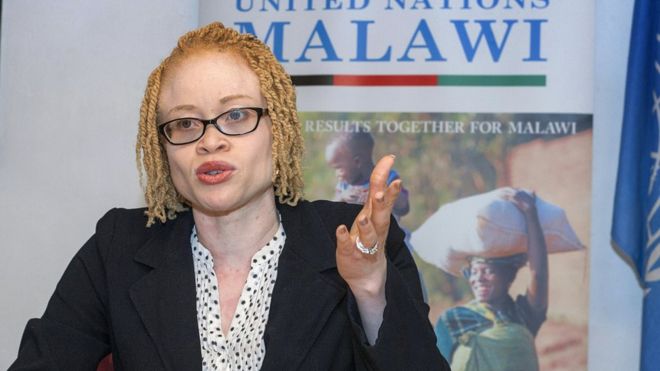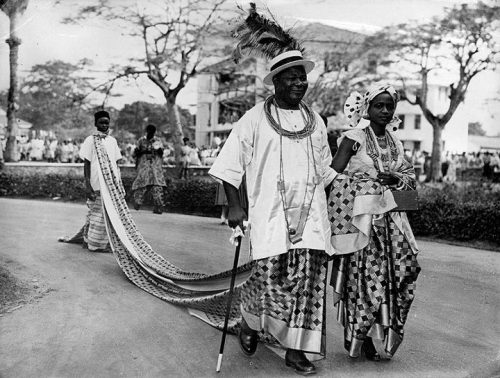We spend about one-third of our lives asleep. But far from being wasted time, from the moment we slide into unconsciousness, a whole raft of functions takes place to make sure that we get optimal benefit from our nightly rest.
Sleep is the time the body can undergo repair and detoxification. Poor sleep patterns are linked to poor health - and those who sleep less than six hours a night have a shorter life expectancy than those who sleep for longer. So sleep has a profound effect on our mental, emotional and physical wellbeing.
Here, Daily Mail writer Angela Epstein explains how the body works on when we drift off.
The brain
Sleep may seem to be a passive and dormant state, but even though activity in the cortex - the surface of the brain - drops by about 40 per cent while we are in the first phases of sleep, the brain remains highly active during later stages of the night.
A typical night's sleep comprises five different sleep cycles, each lasting about 90 minutes. The first four stages of each cycle are regarded as quiet sleep or non-rapid eye move-ment (NREM). The final stage is denoted by rapid eye movement (REM).
During the first stage of sleep, brain waves are small undulations. During stage two these intersperse with electrical signals called sleep spindles - small bursts of activity lasting a couple of seconds which keep us in a state of quiet readiness.
As stage two merges into stage three, the brain waves continue to deepen into large slow waves. The larger and slower the brain wave, the deeper the sleep. Stage four is reached when 50 per cent of the waves are slow.
At this point, we are not taxed mentally and 40 per cent of the usual blood flow to the brain is diverted to the muscles to restore energy. However, during the REM that follows there is a high level of brain activity.
This is the stage associated with dreaming and is triggered by the pons - the part of the brain stem that relays nerve impulses between the spinal cord and the brain - and neighbouring structures.
The pons sends signals to the thalamus and to the cerebral cortex, which is responsible for most thought processes. It also sends signals to turn off motor neurons in the spinal cord, causing temporary paralysis and so preventing us from acting upon our dreams.
REM sleep is thought to help consolidate memory and emotion, as at this point in sleep blood flow rises sharply in several brain areas linked to processing memories and emotional experiences. In areas involving complex reasoning and language, blood flow declines.
The eyes
Though covered by lids, the movement of the eyes denotes the different stages of sleep.
On first falling into semi-consciousness, the eyes roll. But as we move into deeper sleep, rapid eye movement (REM) occurs when the eyes twitch and dart about.
This REM occurs within about 90 minutes of falling asleep and recurs about every 90 minutes throughout the night. It denotes a time when most dreaming is done.
Although brain activity is high at this point, the muscles of the body are relaxed to a point of virtual paralysis. Some experts suggest that this is a device to allow the mind to explore the realms of subconscious without acting upon events occurring in dreams.
Hormones
During our waking hours, the body burns oxygen and food to provide energy. This is known as a catabolic state, in which more energy is spent than conserved, using up the body's resources.
This state is dominated by the work of stimulating hormones such as adrenaline and natural cortisteroids. However, when we sleep we move into an anabolic state - in which energy conservation, repair and growth take over. Levels of adrenaline and corticosteroids drop and the body starts to produce human growth hormone (HGH).
A protein hormone, HGH promotes the growth, maintenance and repair of muscles and bones by facilitating the use of amino acids (the essential building blocks of protein). Every tissue in the body is renewed faster during sleep than at any time when awake.
Melatonin is another hormone produced to help us sleep. Secreted by the pineal gland deep in the brain, it helps control body rhythms and sleep-wake cycles.
Levels of melatonin rise as the body temperature falls, to encourage feelings of sleepiness. The opposite occurs to wake us up.
It is mostly during sleep that the sex hormone testosterone and the fertility hormones, follicle-stimulating hormone and leuteinising hormone, are secreted.
Immune system
Research suggests that sleeping more when fighting infectious illness aids recovery.
This may be due to the immune system's increased production of certain proteins during sleep, as the levels of certain agents which fight disease rise during sleep and drop when we are awake.
Getting enough sleep can also help resist infection, as some studies of healthy young adults have shown that moderate amounts of sleep deprivation reduce the levels of white blood cells which form part of the body's defence system.
A cancer killer called TNF - tumour necrosis factor - also pumps through our veins when we are asleep. Research has shown that people who stayed up until 3am had one-third fewer cells containing TNF the next day, and that the effectiveness of those remaining was greatly reduced. JUST as the world is governed by light and dark, human beings also have an inbuilt body clock called the circadian rhythm.
Housed in the hypothalamus at the base of the brain, it causes 24 hour fluctuations in many bodily activities. It also governs the body's daily alternation between sleep and wakefulness, and works on a 24-hour cycle to let the body 'know' when sleep is coming.
The circadian rhythm regulates all the processes of the body, from digestion to cell renewal. All these body rhythms are triggered by an action of a network of chemical messengers and nerves which are controlled by the circadian clock.
Ensuring regular periods of sleep at night lets the bodyclock regulate hormone production, so that you feel wakeful and alert during the day and ready to enjoy restorative sleep at night.
Body temperature
In the evening, body temperature, along with levels of wakeful hormones such as adrenaline, start to drop. Some sweating may occur, as the body is immobile and tries to combat losing heat.
Body temperature continues to fall throughout the night. By about 5am it has dropped to about one degree centigrade below the temperature it was in the evening.
At the same time, our metabolic rate drops too. This is the time of day when you would feel most tired, as the low temperature coincides with adrenaline at its lowest level.
Low body temperatures increase your likelihood of sleeping deeply and so give the body chance to rest and rebuild. As body temperature starts to rise, it remains more difficult to stay in a deep sleep.
The skin
The top layer of the skin is made of closely packed dead cells which are constantly shed during day. During deep sleep, the skin's metabolic rate speeds up and many of the body's cells show increased production and reduced breakdown of proteins.
Since proteins are the building blocks needed for cell growth and for the repair of damage from factors like ultraviolet rays, deep sleep may indeed be beauty sleep.
Daytime sleep will not compensate for loss of nightly 'beauty sleep' as the energy needed for tissue repair is not available during daylight because it is being used elsewhere.
Breathing
When we fall asleep, throat muscles relax so that the throat gets narrower each time we inhale.
Snoring occurs when the throat is narrowed to a slit and parts of the airway vibrate because of a resistance to breathing. Air is forced through the narrow air passage, causing the soft palate and uvula to vibrate.
Those who snore are more likely to have poor muscle tone in the tongue and throat, which allows the tongue to fall backwards into the airways. Being overweight or having large tonsils and adenoids also contribute to snoring.
However, impaired breathing during sleep can cause a condition called sleep apnoea.
Often caused by fat build-up, poor muscle tone or ageing, sleep apnoea causes the windpipe to collapse when the muscles relax during sleep. This blocks the air flow for from ten seconds to a minute while the sleeping person struggles for breath.
When the person's blood oxygen level falls, the brain responds by making the person tighten the upper airway muscles and open the windpipe. This will result in a snort or gasp before snoring is resumed.
The mouth
Saliva is needed to lubricate the mouth and for eating, but during sleep salivary flow is reduced, so causing a dry mouth in the morning.
However, the mouth can be very active during sleep, as one in 20 adults unconsciously grinds their teeth at night.
This is known as bruxism and occurs mainly during stages one and two of sleep. It is caused by poor alignment of the teeth within the jaw but is also thought to be nocturnal relief for daytime stresses.
Muscles
Though a person can change their sleeping position about 35 times a night, the muscles of the body remain relaxed. This gives the chance for tissues to be repaired and restored.
However, studies indicate that muscles might receive just as much relaxation and repair during simple rest periods and that a state of unconsciousness is not needed for this to take place.
Blood
The heart rate goes down by between 10 and 30 beats per minute when we sleep. This produces a decline in blood pressure, which occurs in restful sleep.
During rest, blood flows from the brain, distends arteries and makes the limbs bigger.
Some scientists believe that fatigue-induced sleep may be a mild form of blood detoxification.
This is because during the day debris from broken down tissues is thrown into the bloodstream. In the waking state, most of this waste will be eliminated through the lungs, kidneys, bowels and skin.
But there could be a saturation point. So nature warns us to reduce these waste products to replenish lost energy, and that causes us to get tired and sleep.
During sleep, the cells and tissues that break down to produce toxic waste then become less active. This gives the chance for broken-down tissue to be rebuilt.
Digestive system
The body requires a regular supply of energy and its key source is glucose. This is constantly burned up to release energy for muscle contraction, nerve impulses and regulating body temperature.
When we sleep, our need for these energy reserves is marginal so the digestive system slows down to a sluggish pace. The immobility of our bodies promotes this.
For this reason, eating late at night is not recommended as our inactive state will prevent enzymes and stomach acids from converting it to energy. This causes that telltale bloated feeling.




 The South-East Senate Caucus on Thursday warned of imminent danger and possible threat to the unity of Nigeria if the Federal Government failed to urgently address the Enugu massacre carried out by Fulani herdsmen.
The South-East Senate Caucus on Thursday warned of imminent danger and possible threat to the unity of Nigeria if the Federal Government failed to urgently address the Enugu massacre carried out by Fulani herdsmen. Blantyre - A United Nations human rights expert has described Malawians living with albinism as "an endangered group facing a risk of systemic extinction over time if nothing is done".
Blantyre - A United Nations human rights expert has described Malawians living with albinism as "an endangered group facing a risk of systemic extinction over time if nothing is done". Several centuries of unalloyed tradition and custom of the ancient Benin Kingdom came to the fore to widespread accolade as the kingdom literally stood still for several hours on Saturday when Crown Prince, Eheneden Erediauwa was installed the Edaiken N’Uselu.
Several centuries of unalloyed tradition and custom of the ancient Benin Kingdom came to the fore to widespread accolade as the kingdom literally stood still for several hours on Saturday when Crown Prince, Eheneden Erediauwa was installed the Edaiken N’Uselu. The Oba of Benin Kingdom, Omo n’Oba Erediauwa Akpolokpolo I, is reportedly dead.
The Oba of Benin Kingdom, Omo n’Oba Erediauwa Akpolokpolo I, is reportedly dead.



 Another relative unknown arrived at Highbury in late 1996 alongside
Arsène Wenger. His name was Patrick Vieira and, together with his new
manager, the midfielder went on to reshape the complexion of the Club,
embarking on a journey to two domestic Doubles and an historic unbeaten
Premier League campaign.
Another relative unknown arrived at Highbury in late 1996 alongside
Arsène Wenger. His name was Patrick Vieira and, together with his new
manager, the midfielder went on to reshape the complexion of the Club,
embarking on a journey to two domestic Doubles and an historic unbeaten
Premier League campaign.









